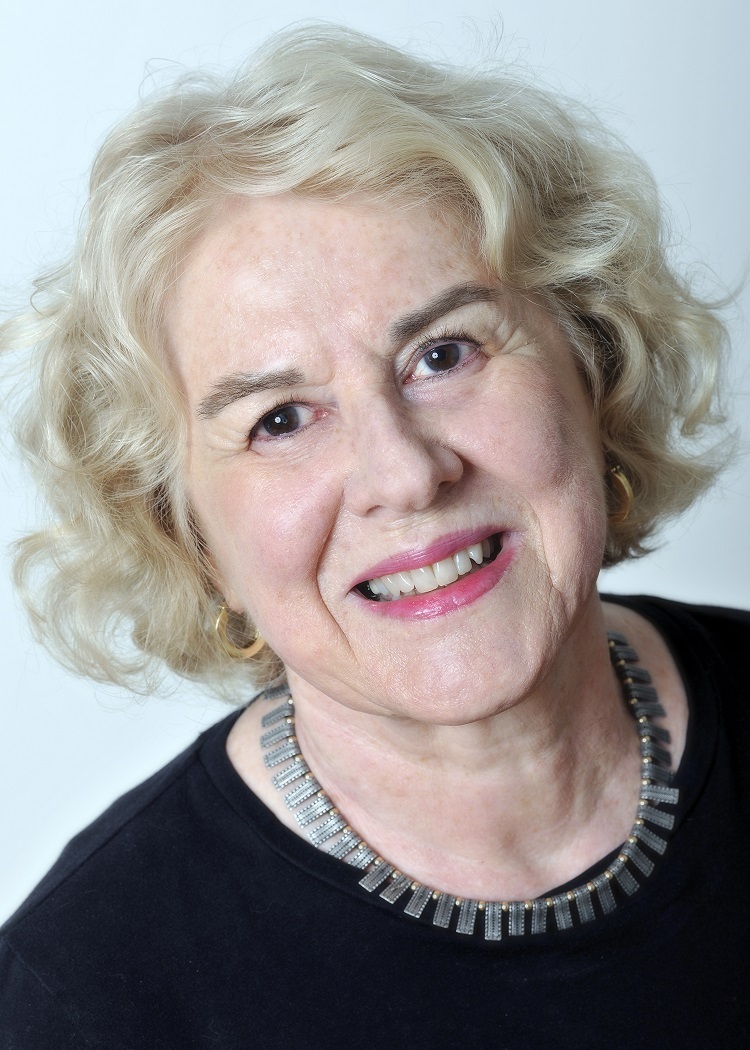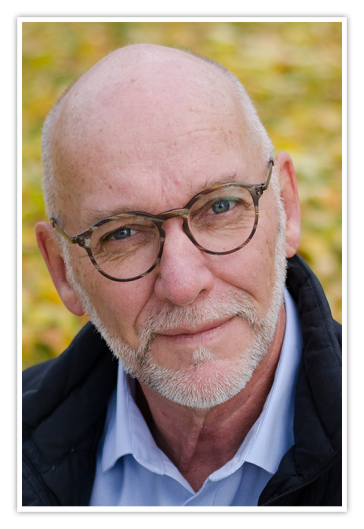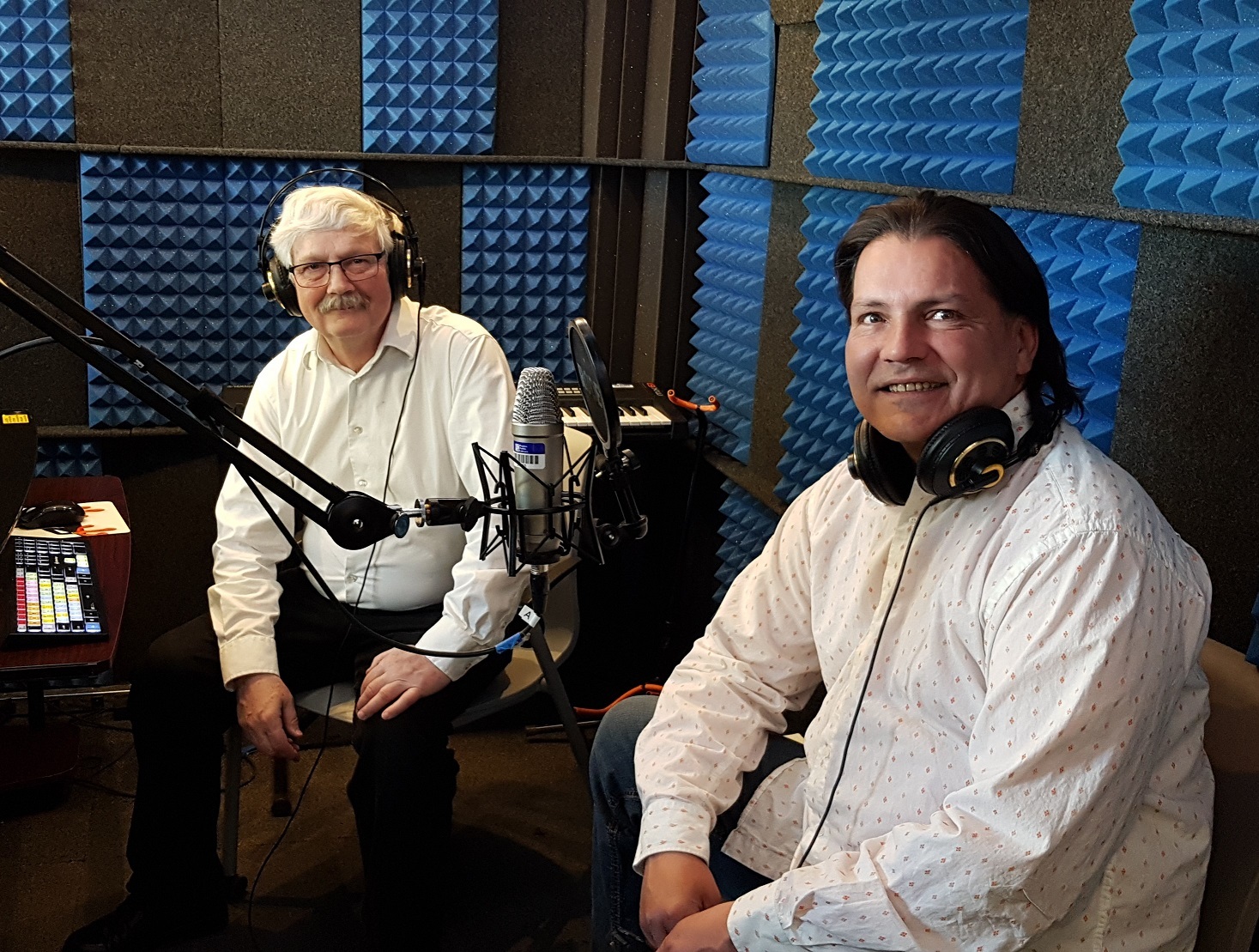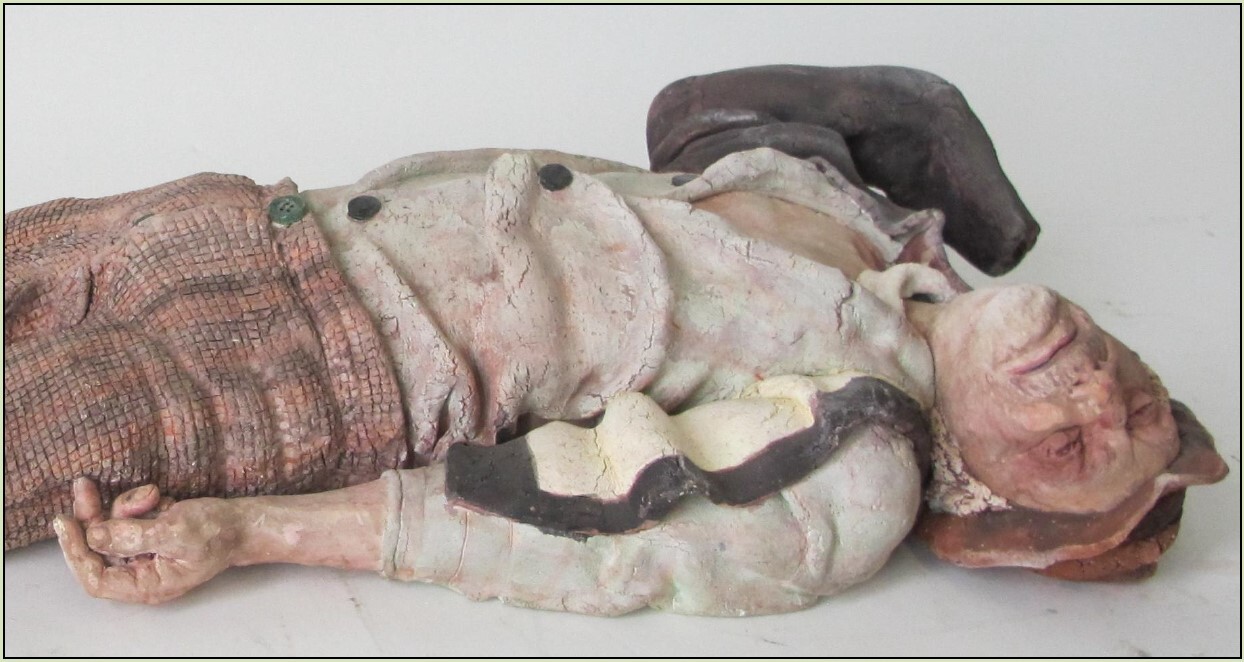The "Poet and the Poem" was started in April 2019 by former SK Poet Laureate Bruce Rice to kick off National Poetry Month. The "Poet and the Poem" is a poet-to-poet dialogue. The goal is to provide a space for poets to speak about particular poems that are important to them. Included is a profile on the writer and discussion on a particular poem in their recent book that they have selected as important to the book or to them as a poet. It will consider the source of the poem, craft, and the poem’s significance to the writer. A copy of the poem will be posted with comments, and where possible, an audio recording will be included.
More information will be posted on this website page and the Poet Laureate Facebook Page. This project would not be possible without the cooperation of Regina Public Library’s Digital Media Studio. Click below for links to the conversations.
2020 The Poet and the Poem - Anne Campbell, Rita Bouvier & Gerry Hill
Featuring Anne Campbell
April 1, 2020

Anne Campbell is an award-winning Canadian writer, editor and arts advocate. She has published six collections of poetry. The most recent, The Fabric of Day, new and selected poems, from Thistledown Press, 2017, was nominated for two Saskatchewan Book Awards. Her edited works include Regina’s Secret Spaces: love and lore of local geography; Biblio Files, a history of the Regina Public Library, from University of Regina Press; and the extensive Dunlop Art Gallery catalogue, Mind the Gap. Anne’s poetry, stories, and nonfiction have been widely published in magazines, journals and anthologies. Her poems have been adapted to musical compositions performed in Canada, the US and UK. Anne Campbell’s previous collections include No Memory Of A Move, Death Is An Anxious Mother, Red Earth, Yellow Stone, Angel Wings All Over, and Soul To Touch. (See more on Anne’s website).
One of my favourite lines from an Anne Campbell poem is, “Mystery has become my brother.” It’s from “The Magician” in No Memory Of A Move, her first collection. Campbell’s preoccupation with mystery and the intersections of the spirit, body, and the world deepens in each book that follows. Earlier poems in The Fabric of Day are set in the pines of northern Saskatchewan where Anne was born. The prairie, the Qu’Appelle Valley, the grasses and trees of southern parts of the province emerge in books that follow, with a return to the pines in the new poems. As we talked about these echoes Anne explained that she didn’t see a hierarchy between ourselves, the grass, or things of nature. We are, she says spirit, our spirit “enfleshed.” Time as a familiar constant that shapes our existence: “Time reminds / beyond the world / she is there / the fabric / of day” (from “Time Comes To Houses On Sundays”), but also part of the eternal to which we are connected.
One of the distinctive aspects of Campbell’s work is the direct engagement with questions of vision. The subject is her own existence, the self and spirit in the world. She does this in a unique way. Many poets speak through other characters or the persona of “the poet.” These are ways of telling a story are often one step away from the “actual” poet and writers are always cautious about personal intrusions that distract from the narrative or the character who is speaking. The impression in an Anne Campbell poem is that the poet herself —the “real” one—is directly before us in the foreground as the main character, and not as a persona. We feel like Campbell is talking directly to us in her kitchen in that clear, concise voice of hers. It’s no wonder that Kristijana Gunners says that the spirit Emily Dickinson haunts the work. Campbell says that Dickinson was not especially her model, but the resonances are interesting, perhaps even more so because the two poets came their Voice by different routes.
The new poems in The Fabric of Day come back to things close at hand, the air we breathe, “the spaces our bodies inhabit” as Campbell continues to ask, “…what does any of this mean; an idea of God, mystery / in which we live everything mixed nothing so clearly separate / as we might think” (in “Swift Fox, Nearly Extinct”—for D.G. Jones).
Click below to find the interview with Anne, the PDF file for her five poems or click on the audio link to hear Anne reading them.
YouTube Interview Link Five poems from The Fabric of Day
Time Comes To Houses On Sundays - Audio recording
Trees Take Account Of The Air - Audio recording
The Grass And Me In The Morning - Audio recording
Falling Into The Sky - Audio recording
Featuring Rita Bouvier
April, 2020
Note to our viewers: A video interview with this author will be posted a later date due to the impact social distancing practices on our editing during the coronavirus situation. A notice will be posted when it’s available.
 Rita Bouvier is the author of three collections of poetry. Her most recent book, nakamowin’ sa: for the seasons (Thistledown Press), was the 2016 winner of the Rasmussen, Rasmussen & Charowsky Aboriginal Peoples’ Writing Award at the Saskatchewan Book Awards. Rita’s poetry has appeared as a children’s book, in literary anthologies, musical and television productions, and has been translated into Spanish, German and Cree-Michif of her home community. Home is sakitawak—Île-à-la-Crosse, Saskatchewan, situated on the historic trading and meeting grounds of the Cree and Dene people living in the region.
Rita Bouvier is the author of three collections of poetry. Her most recent book, nakamowin’ sa: for the seasons (Thistledown Press), was the 2016 winner of the Rasmussen, Rasmussen & Charowsky Aboriginal Peoples’ Writing Award at the Saskatchewan Book Awards. Rita’s poetry has appeared as a children’s book, in literary anthologies, musical and television productions, and has been translated into Spanish, German and Cree-Michif of her home community. Home is sakitawak—Île-à-la-Crosse, Saskatchewan, situated on the historic trading and meeting grounds of the Cree and Dene people living in the region.
I prepared for my conversation with Rita by reading her three collections in the order they were published: papiyahtak; Blueberry Cloud; and nakamowin’ sa: for the seasons. Fred Wah speaks of using Indigenous place names as a kind of recovery, an undoing of the language that was laid over the land. In each of Rita’s books it feels like the use of her Cree-Mitchif language has become a more and more natural part of her writing. In nakamowin’ sa she simply provides a glossary at the end with out the usual practice of providing the English translation to the side or at the end of a poem. These poems flow easily for the reader and the language draw us closer to the poet’s imagination. There’s a stong element of memoire written in the reflective tone of a mature imagination. The particularities of the Cree-Michif language in her books place us in a community the northern Saskatchewan forest and the kind of landscape that is definitely not prairie.
One of the things to admire in these poems is the way a single poem moves easily from family and a life in community to and engagement with the spiritual in a way most contemporary poets have steered away from. In a poem like “how do we hold silence,” she takes us from slurs of a drunk on a bus into Calgary to “silence” and “the sacred space between us [and] the uncertainty of our knowing.” This is the kind of territory and a way of being that she often pushes into — one that opens this kind of space for the reader and for other poets too. Another important subject is being “in relationship” as she says: relationship to each other, but also to place and to the Earth. “…from the edge of our imaginings to the first light of day.”
For me, one of the keys to nakimowin’ sa is this word in the title, which means wordsong (or literally, little songs). It’s a diminutive that suggests a kind of humility on the part of the poet. It suggests the place of the writer and the poems themselves are rather modest in relation to the world and to the mystery that’s often close at hand. But there’s also an element of playfulness and celebration.
Click on the links below to read the three poems from Rita’s interview. Click on the audio links to hear Rita’s them.
how do we hold silence - Audio Recording
deeper than bone - Audio Recording
Featuring Gerry Hill
April, 2020
Note to our viewers: A video interview with this author will be posted a later date due to the impact social distancing practices on our editing during the coronavirus situation. A notice will be posted when it’s available.

Gerald Hill is a poet who retired from Luther College at the University of Regina in 2015 but returns to teach a writing class once in a while. Born and raised in southern Saskatchewan, the son of two farm kids, one an army veteran who also taught school for many years in Saskatchewan, he believes in “a local pride” (in the words of W. C. Williams) as the site where the “universal” first registers. Gerry has published six collections of poetry and has received two Saskatchewan Book Awards for Poetry in the process. His most recent collections are Hillsdale Book and 14 Tractors. Radiant Books will be publishing his seventh collection, Crooked at the Far End, in the fall of 2020. Gerry is also the author of two non-fiction books, Their Names Live On: Remembering Saskatchewan’s Fallen in World War II (with Doug Chisholm) and Still A Round: A History of Regina’s Globe Theatre. He was Poet Laureate of Saskatchewan in 2016.
Gerry’s blog, Poet Shoes, is a rangy (in a good sense) view of a poet’s imagination at play and what it’s attracted to including a speculation on the daily schedules of Benjamin Franklin, Jay Gatsby, and Wilbur, the pig from Charlotte’s Web. Gerry seems to me to be a poet with two sides that are always in play. First, he is a master of voice and a documentarian. In 14 Tractors (NeWest Press), he juxtaposes photographs, tractor manuals, found and adapted text, characters’ voices and common speech, and poems that are sometimes direct reporting where the language alone does the work. At other times we follow the characters’ imagined journeys, all of which is framed by the story of the 14 tractors at St. Peter’s Abby and College in Muenster, Saskatchewan.
Hillsdale Book (also from NeWest Press) takes us through the neighbourhood where Hill grew up. It’s a book of memory, character, and the kind of place we’re anchored to. All of this is in a form that relies on the rhythms of direct speech, subtle changes in direction, line breaks that break the diction to mean something else, lists, and what I like to call found metaphors—thoughts or actions that turn into metaphors when they land on the page. An example, a poem called “Notes, a Not-Book”, says: “I am not buried in trees. / I am not the pelicans swans geese beyond that no I am not that. / I do not walk tethered to dogs. / I am not precarious over time…” It’s a classic case of difining something by what it is not, while also suggetsting that perhaps it is. These two books remind us of the generosity of the longpoem, its space for multiple voices and the range it provides for the imagination. This means the pleasure of discovery for the reader. It often seems easy, but the writer must precisely manage all the moving parts and sustain the drive of the voice and the story. We have to trust the veracity. A wobble here or there and the whole thing falls apart.
The second side of Gerry Hill challenges accepted notions of how “prairie poetry” works, the subject matter, and how a story gets told. Even Hill’s poems based in memory or history are written from a sensibility of the present time. Graphically, Hillsdale Book lays modern urban mapping over this document of the neighbourhood’s early days. It is both a construction and a reconstruction of the actual place. The three poems Gerry chose for The Poet and the Poem interview are another example of this impulse to “break the mold.” There’s that signature play with language but also those existential questions of how we are engaged in the universe and in time. They push sense as they reach toward something that lies beneath the literal surface. Read them aloud, follow the music. Or click on the links below below to hear Gerry read them for you.
Click on the links below to read the three poems from Gerry’s interview. Click on the audio links to hear them.
Three Poems from Crooked at the Far End
Page of Train - Audio Recording
Scene at Graça Viewpoint - Audio Recording
Wrong for the Great-tailed Grackle - Audio Recording
2019 The Poet and the Poem - Carla Harris, Chelsea Coupal, Randy Lundy & Bruce Rice
Featuring Carla Harris, Poet and Performance Artist on Poetry and Writing the Tough Stuff
April 25, 2019
Please note: The following text and interview with Carla Harris include sensitive subject matter. If you prefer, skip directly to the bottom of today’s section for links to the text and audio version of Carla’s poems.

performance artist.
Carla Harris is an emerging Regina poet who works primarily in performance and spoken word. She is a disabled interdisciplinary artist with a background in music, performance poetry and theatre, dabbling in ceramics and printmaking. She says she also loves to volunteer and dedicates her time and energy to mental health and emotional wellness.
In our interview, we talk about her practice, spoken word as a form, and the community that exists around it. I have written previously in ebriefs about what spoken word can teach a page poet (see the updated essay). Carla talks frankly about the space spoken word provides to explore some difficult issues. Many people are aware of poetry slams and competitions, but these crowd-pleasing events have little resemblance to the practice and range of serious artists. Whether you are a fan of the form or not, Carla speaks very directly about how performance and poetry have transformed how she sees her disability which, in turn, affects the writing in very specific ways and is central in her work and practice. And as I say, there are lessons to learn.
Carla Harris on her practice, disability, and her poem, dial tone:
I'm a disabled interdisciplinary artist…I had a brain surgery for my chronic condition in 2006 that left me in speech therapy, relearning language. The process was harrowing and stopped me from writing for a while, but in the long run, that experience has provided me with an unexpected resource for my writing. When they removed the damaged brain tissue, it didn't take words from my memory, it instead changed the path the brain would take to access that information, so for several years I was always trying to find the word I meant, and uncertain about my writing quality and grammar. It took me years to realize that when my brain is trying to find a word, I often think instead of an experience and an emotion that reminds me of whichever word I am searching for: For example, if I want to say "intimidation", what comes to mind is a memory where I felt intimidated, so "What’s that word for that feeling when you're small and the other kid looks like they're going to push you?" While I felt ashamed of this, the spoken word community had my back; because it is a place full of unapologetic storytelling. I started feeling safe to write and perform, because I didn't have to hand over my words for a grade or publication, but also, instead of writing the big formal descriptive words, I could play with the metaphors or emotions to bring my audience with me in the experience. Performance poetry is very forgiving if you can ignore the marks and competitions. It helped me to regain a sense of my voice, and believe that my descriptions were still valid, even if I couldn't remember one particular word.
In this poem dial tone, the opening is a feeling that I remember with a certain scene in a popular movie. I am not commenting on the film, but relating to that feeling that I had when watching the character go through that scene. In my poems, I don't pursue texture intentionally but when I try to describe experience, different thoughts like the texture of sound intersperse the piece with different font textures for different voices. This poem is from a series I am currently working on of poems all from the perspective of a sexual assault victim as they acquire and adapt to live with PTSD, written from my own experience after I was sexually assaulted 3 years ago.
Click below for:
YouTube Interview Link Two Poems by Carla Harris
Drowning in dial tone - Audio Recording
Sidewalk Solutions - Audio Recording
Featuring Chelsea Coupal
April 18, 2019

poems in the “whisper room” of
theRegina Public Library’s Digital
Recording Studio.
Digital Media Specialist, Kevin
Kyle is on the left.
Sedley is Chelsea Coupal’s first poetry collection from Coteau Books. When I went looking for a review copy there were two surprises. One was that an original copy was hard to come by—in less than a year it had almost sold out. The second surprise is that you can buy the book from Indigo, which has issued what they call an Exclusive edition that’s available in their stores and on-line. Sedley has also been shortlisted for three Saskatchewan Book Awards. Not bad for a first book.
Coupal grew up in Sedley, Saskatchewan, a village of 300 souls 25 miles southeast of Regina. Chelsea won the 2017 City of Regina Writing Award. She holds a Master of Arts degree in Creative Writing from the University of Regina and says she came to poetry when she took a creative writing class while working on her Journalism degree. Her poems have appeared in Arc, CV2, EVENT, and Grain.
Full disclosure: I was the lucky editor of the collection. It was an interesting position to be in as I got ready to interview her for The Poet and The Poem. It was a chance to respond to physical book wearing the “hat” of just another poet. I have always thought that this book is much more than a coming-of-age in a small town story. That’s certainly a central thread, but Coupal also has a documentarian eye that records the life of a community as it is now, and the poetry comes with an integrity that gives the characters and place a voice. As for the land, it is always a presence, but one that is seen through a lens that photography would be call “the new topographics.” In this case it means writing that speaks of these places as they actually are, caught in a nexus of change; but there is room for beauty, and in Sedely it is seen through the eyes of one who knows it well, almost casually.
The Poet and the Poem likes to ask poets to talk about the poems in their collection that is key to the book or particularly important to them as a writer. Chelsea chose “We Know.” Her comments follow. We also talked about “In the Morning,” which I didn’t previously know was a favourite for both of us. We did audio recordings of Chelsea reading the two poems and added a third track, “The Sky is Red.”
Chelsea Coupal on her poem, “We Knew”
This is one of the more recent poems I wrote for the collection. I had reached a point where I paused to ask myself: “What do I need to say that I haven’t said already? What do I want to say that perhaps I’ve been too afraid to say?”
I also love lists and repetition. There are a few poems in my collection that basically take the form of a list. To draft this poem, I just started jotting down details in my notebook – those details I hadn’t mentioned yet. And I thought it might work well to compile them into a list of things “we” (my friends and fellow classmates) knew about the place we were living in. I wanted the list to include details that are lovely in some way (the storm clouds; the crickets) and details that are somewhat uncomfortable or aren’t typically voiced out loud (the deadly winter temperatures; the bullying; the financial struggles.) And I wanted to save the darkest detail – that universal thing we really don’t discuss – for the end.
See the links to the inteview and poems below. For more information on Sedley and on Chelsea Coupal see the Coteau Books webpage, or see the Indigo website and stores where the book can be purchased.
In the meantime, good writing and good reading!
— Bruce Rice, Saskatchewan Poet Laureate
Click below for:
YouTube Interview Link Two Poems from Sedley
In the Morning - Audio Recording
The Sky is Red - Audio Recording
Featuring Randy Lundy
April 11, 2019

ecords a poem in Regina Public
Library’s “whisper room.”
Lundy’s book has been nominated for four Saskatchewan Book Awards, including Book of the Year. Randy is a member of the Barren Lands Cree First Nation. He was born in Thomson, Manitoba but has lived most of his life in Saskatchewan. His two previous collections are Under the Night Sun and Gift of the Hawk (both from Coteau Books).
One of the most distinctive features of Lundy’s work is his eclectic sources. Although his Cree heritage is reflected throughout the writing, he also draws on many other sources. There are references to the Buddhist traditions, and a nod to everyone from Aristotle to Blake, and questions of being: but it’s lightly done, and the result is poems that are grounded and accessible, with a complex landscape that invites re-reading. Nature is its own figure in the poems. It is not elegized so much as a closely observed, and with an almost domestic familiarity with ordinary things. The result is a pleasing lucidity of language, scene and thought.
The interview includes two Poem Talks. The first is a reading and discussion of “For Kohkum, Reta” from the book’s first section. The poem opens on a scene in his grandmother’s kitchen as she makes bread. It’s a universal scene that could easily become simply nostalgic, but Lundy pushes the vision, He says, “Memory is an uncomfortable skin.” It’s a statement he slips in with deceptive ease, and one of many such leaps in perception.
Lundy’s own choice of a poem with particular meaning to him is, “November of My Fiftieth Year.” It is one of the meditative prose poems in the middle section of the book. These poems actually came after the rest of the writing, and reflect a settling of questions of self, and a kind attention and listening to the natural world that tries to be free of ego.
Click on the links below to the interview and to text and audio recordings of Lundy reading the two poems. Thanks once more to Regina Public Library’s Digital Media Studio, which made the
video interview and audio recording of the two poems possible.
— Bruce Rice, Saskatchewan Poet Laureate
Click below for:
Randy Lundy's widely-praised collection, Blackbird Song
YouTube Interview Link Two Poems from Blackbird Song
For Kohkum, Reta - Audio Recording
November of My Fiftieth Year - Audio Recording
From: Bruce Rice, Saskatchewan Poet Laureate
April 4, 2019
The Poet and the Poem
Welcome to the Saskatchewan Poet Laureate webpage. April is National Poetry Month and I have started something called The Poet and the Poem to kick it off. Each week for the next three weeks you will find a video interview with a Saskatchewan poet. These are poet-to-poet conversatinos that profile the writer and include a “Poem Talk” on a poem in their recent book that they have selected as particularly important to the book or to them as a poet. It will consider the source of the poem, craft, and the poem’s significance to the writer. A copy of the poem will be posted with comments, and where possible, an audio recording will be included. The first invited poets for The Poet and the Poem are Randy Lundy (Blackbird Song) and Chelsea Coupal (Sedley) both of whom are nominated for multiple Saskatchewan Book Awards.
This week will be different. One of Saskatchewan’s most important artists, Joe Fafard passed away recently. Joe was known throughout the Saskatchewan arts community, across Canada, and internationally. I was one of five poets commissioned to create work in response to the opening of his retrospective at the MacKenzie Art Gallery in 2007. The poem appears herein Joe’s honour and of that wonderful night. I was particularly moved by one of his clay sculptures, Batoche. The subject of the piece is one of the Métis killed in the battle. In the poem, the fallen Métis is giving Joe a hard time as he works on the sculpture. More comments follow the poem. Click on the links below for the poem and for the audio recording.

Fafard family
YouTube Audio of the Poem "Dead Metis at Batoche"
